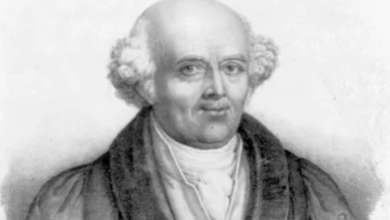
Doctor of Homeopathy: Medical Professional Specializing in Homeopathy
The role of a Doctor of Homeopathy extends beyond mere treatment; it encompasses a comprehensive understanding of holistic health principles rooted in the work of Samuel Hahnemann. These medical professionals are trained to tailor their approach, addressing the unique needs of each patient while fostering the body’s inherent healing capabilities. As interest in alternative medicine grows, the effectiveness and scope of homeopathic practices warrant a closer examination. What insights can we uncover about the qualifications, benefits, and common conditions treated by these specialists?
Overview of Homeopathy
Homeopathy, a system of alternative medicine founded in the late 18th century by Samuel Hahnemann, emphasizes the body’s innate ability to heal itself.
The history of homeopathy reveals its foundational principles, which include “like cures like” and potentization.
This holistic approach fosters patient-centered care, empowering individuals to take control of their health while relying on evidence-based practices for safe and effective treatment.
Qualifications of Homeopathy Doctors
To practice effectively within the realm of homeopathy, doctors must possess specific qualifications that reflect their training and expertise.
Accredited training programs are essential, ensuring that practitioners meet rigorous accreditation standards. This comprehensive education fosters a holistic, patient-centered approach, emphasizing individualized care.
Also read: Doctor of Homeopathic Medicine: Medical Professional Specializing in Homeopathy
Benefits of Homeopathic Treatment
Numerous patients have reported experiencing significant relief from a variety of ailments through homeopathic treatment.
Patient testimonials highlight the treatment effectiveness of individualized remedies, which address both physical and emotional aspects of health.
This holistic approach empowers individuals, fostering a sense of autonomy in their healing journey.
Evidence-based practices ensure that homeopathy remains a credible alternative for those seeking freedom from conventional medical constraints.
Common Conditions Treated by Homeopaths
Many individuals turn to homeopathy for its ability to address a wide range of health issues, providing a personalized approach that considers both physical and emotional well-being.
Homeopaths often treat conditions such as allergies, offering relief through tailored remedies, as well as chronic pain management.
This holistic and patient-centered practice empowers individuals to reclaim their health and enhance their overall quality of life.
Also read: Do Homeopathic Remedies Expire: Shelf Life and Expiration of Homeopathic Medicines
Conclusion
In conclusion, the role of a Doctor of Homeopathy stands as a beacon of hope in an era often dominated by quick fixes and synthetic solutions. By fostering a holistic, patient-centered approach grounded in evidence-based practices, these medical professionals facilitate profound healing journeys. As the ancient wisdom of homeopathy continues to resonate amidst modern medical advancements, it invites individuals to explore a deeper connection with their own innate healing abilities, ultimately transforming both health and quality of life.




